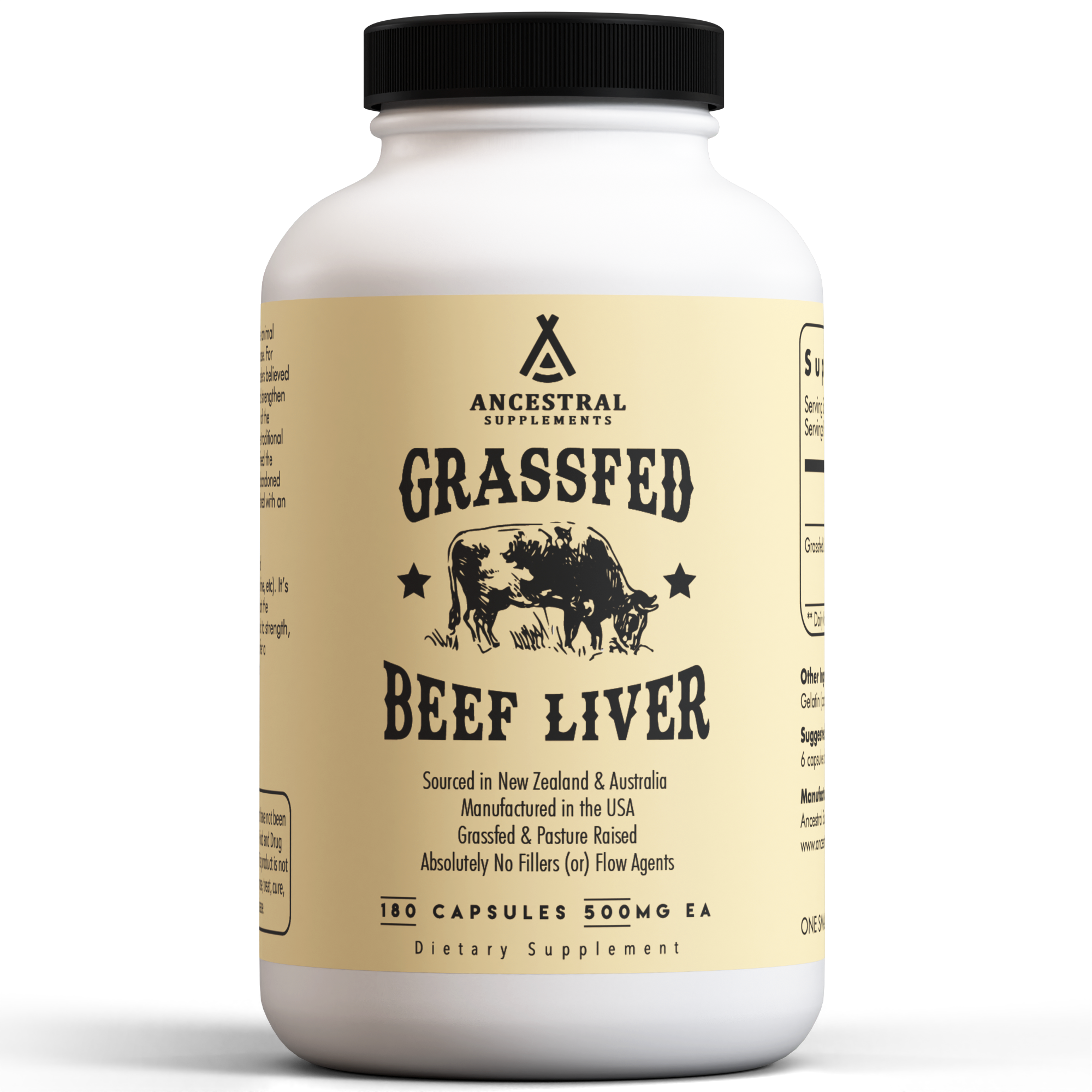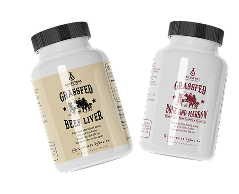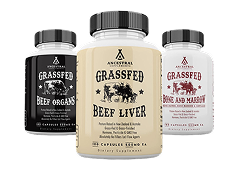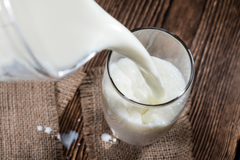Keto vs Carnivore: Which Diet Is Right for You?

Both keto and carnivore diets promote rapid weight loss and metabolic benefits by drastically cutting carbohydrates, but they take fundamentally different approaches to achieving these goals. While keto focuses on achieving ketosis through precise macronutrient ratios, the carnivore diet eliminates plant foods entirely in favor of an all-animal approach.
If you're considering either path, understanding their distinct philosophies, practical requirements, and potential outcomes is crucial for making an informed choice. This comprehensive comparison will break down the science, benefits, and real-world challenges of each diet, helping you determine which approach aligns best with your health goals and lifestyle.
What Is the Keto Diet?
The ketogenic diet is defined as a low-carb, high-fat diet designed to put the body into a metabolic state called ketosis. Originally developed as a medical diet for treating epilepsy, the keto diet has since gained popularity for its potential in weight loss, metabolic health, and even for its potential benefits in managing certain neurological conditions. It involves a significant reduction in carbohydrate intake, which forces the body to utilize fat as its primary source of energy, thereby promoting fat burning and stabilizing blood sugar levels.
How It Works
In ketosis, the body breaks down fats into ketones, which serve as an alternative energy source when carbohydrates are scarce. This process stabilizes insulin levels, reduces hunger pangs, and promotes fat burning. (1)
Key points on how it functions:
-
Carbohydrate intake is limited to 20 to 50 grams per day.
-
The body shifts from using glucose to using ketones for energy.
-
This metabolic shift helps in stabilizing insulin levels.
Common Foods on the Keto Diet
Let’s touch on some of the typical foods that are allowed on the keto diet include:
-
Avocados
-
Meats (beef, chicken, pork, etc.)
-
Dairy products (cheese, butter, cream)
-
Nuts and seeds
-
Low-carb vegetables (leafy greens, zucchini, cauliflower)
These foods provide essential nutrients while keeping carbohydrate intake low.
Benefits
The keto diet offers numerous potential benefits, including:
-
Significant weight loss
-
The keto diet can also help reduce overall calorie intake by promoting feelings of fullness.
-
Improved mental clarity
-
Better blood sugar control
-
Enhanced skin health
-
Cognitive function improvements
Additionally, some people report increased energy levels and reduced inflammation. (2)
What Is the Carnivore Diet?
The carnivore diet is actually another form of a low-carb diet, but it takes restriction to the extreme by eliminating all plant-based foods.
As a matter of fact, this diet focuses solely on animal-based products, making it a zero-carb diet. Unlike the keto diet, which allows for a variety of foods like vegetables, nuts, and dairy, the carnivore diet strictly limits its menu to meat, fish, eggs, and certain low-lactose dairy products.
Considered extreme by some, it is believed by its advocates to simplify meal planning and provide a more straightforward path to achieving ketosis and other health benefits. However, it also means giving up a wide range of foods that many people enjoy and find nutritionally beneficial.
This section explores the components and potential benefits of the carnivore diet…
How It works
Advocates of the carnivore diet argue that animal products provide comprehensive nutrition and can address various health concerns. This diet relies quite heavily upon animal fat and protein to provide energy, promoting a state of ketosis as well, just like keto, due to the lack of carbohydrates.
Common Foods on the Carnivore Diet
Allowed foods on the carnivore diet include:
-
Various meats
-
Organ meats
-
Fish
-
Eggs
-
Some low-lactose dairy like butter and hard cheeses
These foods are rich in essential nutrients and healthy fats.
Benefits
The carnivore diet may offer benefits such as reduction in inflammation, improved digestion, and mental health improvements. Some followers also report significant weight loss and enhanced blood pressure control.
Key Differences Between Keto vs Carnivore
While both diets restrict carbohydrates to trigger fat burning, they take markedly different approaches to food selection and nutritional philosophy. Understanding these core distinctions will help you evaluate which diet aligns better with your preferences and circumstances.
Carbohydrate Limits
-
Keto: Restricts carbs to 20-50 grams daily (5-10% of total calories), allowing ketosis while maintaining some plant foods
-
Carnivore: Eliminates carbohydrates entirely, creating a zero-carb environment through animal foods only
Food Variety and Sources
-
Keto: Includes low-carb vegetables, nuts, seeds, dairy, and healthy fats alongside animal proteins, offering considerable meal variety
-
Carnivore: Limited to animal products—meat, fish, eggs, and select dairy—with organ meats providing concentrated nutrition
Nutritional Philosophy
-
Keto: Focuses on macronutrient ratios to achieve metabolic ketosis while incorporating diverse food groups
-
Carnivore: Emphasizes bioavailable nutrients from animal sources, including B12, heme iron, and complete amino acid profiles
Practical Considerations
-
Keto: More adaptable for social dining and meal planning due to broader food options
-
Carnivore: Presents social challenges but offers simplicity—ordering plain meat at restaurants is straightforward, though side dishes must be declined
Sustainability Factors
-
Keto: Greater food variety may support long-term adherence for some people
-
Carnivore: Extreme simplicity appeals to those who prefer minimal food decisions but may feel restrictive over time
Similarities Between Keto and Carnivore
Despite their differences, keto and carnivore diets share several similarities, particularly in their focus on low carbohydrate intake and potential health benefits.
Low Carb Focus
Of course, both the keto and carnivore diets emphasize a significant reduction in carbohydrate intake to promote fat utilization for energy. This low-carb focus helps both diets achieve their primary goal of encouraging the body to enter ketosis. Both diets also emphasize the elimination of processed foods to promote overall health and weight loss.
Potential for ketosis
Both diets can lead to ketosis, where the body predominantly burns fat for fuel instead of carbohydrates. While keto aims for this state through specific macronutrient ratios, the carnivore diet naturally promotes fat burning due to its zero-carb nature.
Shared Benefits
Advocates of both diets often report substantial weight loss, improved mental clarity, and steady energy levels. Additionally, both diets may assist in better blood sugar management and cognitive enhancement.
Considerations and Potential Challenges
Both diets can offer meaningful benefits, but it's important to understand the practical and health considerations that may arise. Being aware of these factors can help you prepare for success and make informed decisions about your approach.
Keto Diet Considerations
Adjustment Period: Many people experience temporary symptoms during the first 1-2 weeks, often called "keto flu," which may include fatigue, headaches, or digestive changes as the body adapts to using fat for fuel.
Maintenance Requirements: Staying in ketosis requires consistent carbohydrate monitoring, as exceeding your personal carb threshold can temporarily shift you out of this metabolic state.
Long-term Monitoring: Some individuals may benefit from periodic health check-ups to monitor kidney function and electrolyte balance, particularly if they have pre-existing health conditions.
Carnivore Diet Considerations
Nutritional Planning: Since plant foods are eliminated, careful attention to nutrient density becomes important. Including organ meats and varying protein sources can help address potential gaps.
Digestive Adaptation: The absence of fiber may initially cause digestive changes. Many people find their systems adapt over time, though experiences vary.
Social and Practical Factors: The limited food variety can present challenges in social settings and may require more meal planning when dining out or traveling.
Individual Response: Like any restrictive approach, some people thrive on the simplicity while others may find the limited options challenging to maintain long-term.
Important Note: Both diets represent significant dietary changes. Consulting with a healthcare provider before starting either approach is recommended, especially if you have existing health conditions or take medications.
Keto vs Carnivore: Choosing the Right Diet for Your Goals
The most effective diet is one that aligns with your specific health objectives, lifestyle, and personal preferences. Rather than following trends, focus on which approach offers the best fit for your unique circumstances and long-term sustainability.
Matching Diet to Objectives
For Weight Loss: Both diets can be effective, but consider your food preferences. Keto offers more variety and flexibility, while carnivore provides simplicity and eliminates decision fatigue around food choices.
For Mental Clarity: Both diets can improve focus by stabilizing blood sugar levels, which directly impacts brain function. When blood sugar spikes and crashes throughout the day—common with high-carb diets—it can cause brain fog, difficulty concentrating, and mental fatigue. Stable blood sugar provides your brain with consistent energy, leading to clearer thinking and sustained focus. Keto maintains this stability while allowing some carbohydrates, while carnivore eliminates blood sugar fluctuations entirely by removing all carbs. Additionally, carnivore's elimination approach may help identify food sensitivities that could be affecting cognitive function.
For Digestive Issues: Carnivore's elimination of plant compounds may help those with certain sensitivities, while keto's inclusion of low-carb vegetables provides fiber that some people need for optimal digestion.
Lifestyle Integration
Time and Planning: Keto requires macro tracking and meal planning but offers restaurant flexibility. Carnivore eliminates tracking but may require more preparation for social situations.
Family Dynamics: Consider how your chosen approach affects family meals and grocery shopping. Keto often adapts more easily to family eating patterns.
Travel and Work: Evaluate which diet fits better with your work schedule, travel requirements, and social commitments.
Making an Informed Decision
Start with Assessment: Honestly evaluate your cooking skills, time availability, and food preferences before committing to either approach.
Professional Guidance: Consulting with a healthcare provider or registered dietitian can help you understand potential benefits and risks based on your medical history and current health status.
Trial Period: Consider starting with a short trial period to assess how your body responds before making a long-term commitment.
Conclusion
Keto provides flexibility and variety while still delivering low-carb benefits, making it potentially easier to maintain long-term and navigate socially. Carnivore offers simplicity and elimination benefits but requires greater commitment to a restrictive approach. If you're drawn to both approaches, consider the ketovore diet—a middle-ground option that combines animal-based foods with select low-carb vegetables, offering more variety than pure carnivore while maintaining many of its simplicity benefits.
Neither diet is inherently superior—success depends on finding the approach that you can follow consistently while meeting your nutritional needs. Consider starting with the option that feels more sustainable for your current lifestyle, knowing that you can always adjust your approach as you learn what works best for your body.
No matter which diet you choose, you can fill the nutritional gaps with our grass-fed beef organ supplements.





















